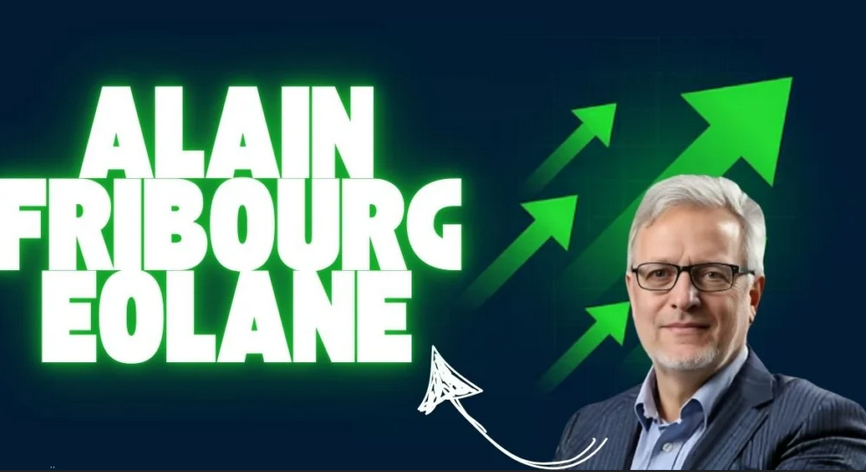In today’s fast-moving digital world, web development and gaming are merging in exciting ways. Tools like Vercel, once mainly tied to hosting web applications, are now playing a significant role in the games and stuff Vercel ecosystem. Developers are discovering new ways to deliver immersive games through platforms built for speed, scalability, and seamless performance. This article dives deep into how Vercel is shaping modern game development, its unique benefits, and inspiring gaming projects powered by its technology.
What is Vercel?
Vercel is a powerful cloud platform that simplifies website and application deployment. Designed with developers in mind, Vercel supports popular frameworks like React and Next.js, offering automatic scaling, speedy performance, and a smooth user experience. Founded by Guillermo Rauch, Vercel focuses on removing friction from the development process, enabling creators to launch fast, secure, and globally optimized applications — and now, even games.
Originally popular among web developers, Vercel’s flexible, serverless architecture has opened doors for game developers who want to push the boundaries of what browser-based gaming can achieve.
How Vercel and Game Development Connect
While gaming was not Vercel’s original focus, its infrastructure is surprisingly well-suited for it. Game developers are using Vercel to deliver fast, interactive experiences without the hassle of maintaining complex server systems. Thanks to its edge network and serverless functions, Vercel can handle real-time actions, dynamic content, and heavy traffic — all crucial elements for successful online games.
The platform’s ability to host everything from game landing pages to live multiplayer sessions makes it a versatile choice for developers aiming to craft next-generation gaming experiences.
Why Developers Choose Vercel for Gaming Projects
Instant Deployment and Effortless Updates
One of Vercel’s biggest strengths is its streamlined deployment process. Developers can connect a Git repository and deploy changes instantly. This continuous deployment approach allows for quick game updates, feature rollouts, and bug fixes — all without disrupting player experiences.
Automatic scaling ensures that as more players join, the infrastructure adjusts without needing manual intervention, keeping games running smoothly even during traffic spikes.
Lightning-Fast Performance Across the Globe
Gaming is all about speed, and Vercel delivers. Its edge network ensures that content is served from servers geographically close to the user, minimizing latency. In online games, even slight delays can ruin the player experience. Vercel’s emphasis on low latency helps maintain competitive gameplay and real-time responsiveness, setting it apart from traditional hosting platforms.
Flexible Backend with Serverless Functions
Many games require backend services — think player authentication, scoreboards, matchmaking, or in-app purchases. Vercel’s serverless functions allow developers to build and deploy APIs effortlessly. Instead of managing traditional servers, developers can write lightweight backend logic that automatically scales, leading to faster development and lower maintenance costs.
Static Site Generation for Lightweight Games
Interactive storytelling games, puzzle apps, and other games that don’t require constant server interactions can benefit from static site generation (SSG) and server-side rendering (SSR). With tools like Next.js supported natively on Vercel, developers can pre-render game content, resulting in lightning-fast load times and an enhanced user experience.
Which Projects Show Vercel’s Gaming Potential?
Vercel is already helping game developers bring innovative projects to life. Here’s a look at a few ways it’s being used:
Browser-Based HTML5 Games
Developers are using Vercel to host lightweight HTML5 games that run directly in web browsers. Frameworks like Phaser integrate easily, allowing for smooth animations, intuitive controls, and vibrant visuals. Vercel’s built-in image optimization and caching tools ensure these games load quickly and remain engaging.
Demos and Prototypes for Indie Games
Many indie developers rely on Vercel to deploy game demos rapidly. Whether for beta testing, community feedback, or showcasing to potential investors, the ability to host and update prototypes with minimal effort makes Vercel an ideal partner for creative experimentation.
Real-Time Multiplayer Gaming
For real-time online multiplayer experiences, maintaining strong server connections is critical. Developers are using Vercel’s serverless functions to manage WebSocket communications, enabling real-time player interactions without needing traditional backend servers.
Developer Blogs and Game Documentation
Besides games themselves, many creators use Vercel to host developer blogs, tutorials, and official game sites. These platforms help foster community engagement, provide updates, and share behind-the-scenes insights, all while benefiting from Vercel’s fast loading speeds and secure delivery.
Who Should Consider Using Vercel for Games?
Vercel is a compelling choice for:
- Indie Developers: Quickly iterate and launch playable demos.
- Web-Based Game Creators: Deliver fast, browser-native games without heavy infrastructure needs.
- Startups and Studios: Build scalable multiplayer experiences without investing in dedicated server farms.
- Community Managers: Create community portals, blogs, and game support hubs with ease.
Whether you’re building a competitive multiplayer title, an educational game, or a storytelling app, Vercel provides the tools needed to succeed.
Final Thoughts on Vercel and Modern Game Development
As web technologies continue to evolve, so too does the way games are created and shared. Vercel’s blend of performance, flexibility, and developer-friendly features is empowering a new wave of game developers to think bigger and build faster. Whether hosting simple browser games or complex multiplayer ecosystems, Vercel offers a scalable and efficient solution that meets the demands of today’s players.
The intersection of web development and gaming is just beginning to show its true potential, and Vercel stands at the heart of this transformation. By adopting Vercel into their workflows, developers can focus more on creativity and innovation — the cornerstones of any great gaming experience.
Clearing Up Confusion
Is Vercel only for hosting websites?
No. While Vercel is commonly associated with web applications, it is equally effective for hosting games, prototypes, backend APIs, and community portals.
Can Vercel handle real-time multiplayer games?
Yes. With serverless functions and WebSocket support, Vercel can manage real-time player interactions in multiplayer games.
Do I need to know Next.js to use Vercel for gaming?
Not necessarily. While Next.js is commonly used, any frontend framework (or vanilla JavaScript) can be deployed on Vercel.
Is Vercel a good fit for large-scale games?
It depends on the game’s architecture. For browser-based games, demos, and moderate multiplayer loads, Vercel is an excellent choice. For massive AAA titles, a combination of platforms might be needed.
How much does it cost to use Vercel for gaming projects?
Vercel offers a generous free tier, with paid plans available for larger projects requiring more bandwidth, serverless function calls, or collaboration features.
Get the latest innovations and trends—follow TechFeed!










